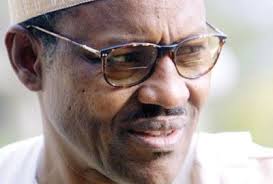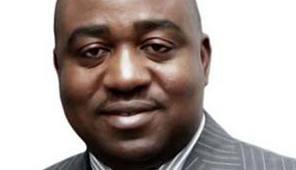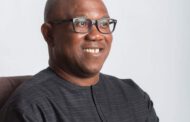By Achilleus-Chud Uchegbu
I have a confession to make. And I make it before you. I have been an admirer of Major General Muhammadu Buhari. I like him for one major reason –his knack for disciplined lifestyle. Some time when I think through his philosophy, I tend to see in him one person who has an idea of what ought to be done but lacks the oratory to communicate it. He tends to communicate more with his body language than he does with the spoken word. I like him because he has been stubbornly fixated on changing Nigeria with just one instrument –discipline. However, that instrument is his undoing. That is the same instrument some Nigerians, even his supporters, sincerely don’t want.
In his politics, he has shown that money does not necessarily conquer all. He has retained his band of friends even without dishing out contracts or signing out cheques to them. Those who follow him closely do so because they see in him one man who is stubborn to his believes. But I cannot say if indeed, Buhari has pan-Nigerian zeal. However, as Deng Xiaoping would say, it does not matter if the cat is black or white so long as it catches the mice. I think that should also apply to anyone who aspires to lead Nigeria, not necessarily to Gen. Buhari. No doubt, Nigeria stands to gain a lot of insights from his calm appeal and zest for the good.
Recently while addressing a meeting of his supporters at Utako in Abuja, Buhari sounded like a man who had resigned to fate in pursuing his ambition to contest for the office of President a record fourth time. He waxed so religiously philosophical at the meeting that I started doubting if indeed, he will join the race. First, his reference to money and what it costs to seek the permission of Nigerians to serve them, was, to me, a resignation. I don’t think N27m, which is the cost of the presidential form of his party, APC, should be a problem to him. I believe he has large enough support to raise same. But those who know Buhari very closely would say he is not one to ‘waste’ such amount in a gamble. Buhari is not a gambler. He is a realist. But the reality seems now to dawn on him that though age is just a number, he may no longer command same respect and support, he once had under defunct ANPP. With APC, the game is about hard cash.
However, Buhari disappoints me. According to my checks, he left office as Head of State, though not voluntarily, in 1985. He was there between 1983 and 1985. By 2015, it would have been 30 years since left office. It means that Buhari had left both the Army and State House before I wrote WAEC in 1988. Seeking to become president 30 years after he left office, says a whole lot about Buhari and Nigeria. I may be wrong in my interpretations, but to my mind, it would mean that this country had stagnated so much so that it is unable to produce capable human resources that could lead it 30 years after. I also could mean that as Head of State, Buhari did not lay any foundation to human capital development that could produce capable leaders 30 years after.
It would also mean that Nigeria has not moved on since 1985. I don’t want to accept this proposition. But that is what it seems like if we look around and insist that Buhari should still vie for office of President. Looking back, government offices used either Olympic or IBM typewriters with stencil papers and liquid erasers when Buhari was in office. Even electric typewriters were absent. Simply put, technology was still being incubated when Buhari was in office. Generationally, he belonged to the analogue age in technology and leadership. This is reason Atiku Abubakar, and others in APC, dominate the social media where he is absent.
Again, Nigerians born between 1985 and today, make up Nigeria’s internet age. They talk and do more with IT. They are better engaged on social media. This is a very serious challenge. To engage with them means being visible on the social media. It thus means that Buhari will have difficulties connecting with this critical mass of Nigeria’s population who want to interact online. Buhari lacks this appeal.
Leaders -political, business and social -across the world are going e-governance. Hit the twitter today and you find handles of notable world leaders. Almost every global organisation now interacts with the world on social media. Statistically, about 64m Nigerians have data access. More than half of that are active of the social media. This means a lot to any leader who understands the need to connect and interact with his audience in a language they understand and appreciate. People now want to be a button away from their leaders. Buhari however presents himself as deeply analogue but stubbornly focused on his convictions.
What I had expected from Buhari, and his school of thought, is to groom and nurture succession. That he had contested the presidency in 2003, 2007, 2011 and going for 2015, clearly indicates that he trusts no one else but himself. As a moral compass (as some Nigerians see him), one had expected that Buhari, overtime, would have thrown up a younger element; one who can connect with the world, and Nigeria’s future, digitally using available social media platforms; someone who is generationally at par with current demographics in leadership. Recently, ED Miliband, addressing his supporters in the UK, called for power shift to the U-17s. I am imagining what it would be like, to have an almost 80-year old, sitting in a meeting and discussing global warming, IT advancement, e-agriculture, e-commerce, e-governance etc with under 40s and under 50s. This is where Buhari’s philosophical and political school needs to re-evaluate itself. I think this is major reason most Nigerians no longer connect with him.
Thinking about it more deeply, there is no possibility of ideas of the 1980s working up to solve problems of the 2015s. These are different epochs with different realities. Military stoicism and character fixation on change and discipline are no longer leadership qualities that are relevant in a digital age where youths prefer to see youthful characterisation of leadership and governance.
Like I said earlier, Buhari is a good man. But his leadership skills are confined to the past. He ought to have nurtured a successor who he would stand behind as a moral guide. It must not always be him. Again, I may be wrong and would want to be told so.














